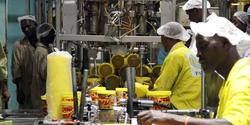By MUTHOKI MUMO
Farmers whose land was acquired for a controversial Bidco palm oil project in Uganda have been compensated.
The payoff to the 36 farmers follows mediation by the dispute resolution office of the World Bank’s International Finance Corporation (IFC).
A Ugandan environmental lobby had last year filed the case at the IFC’s ombudsman on behalf of the Bugala Farmers Association (BFA), claiming that their land was grabbed and that Bidco had degraded the environment to pave way for palm oil production.
The case went into dispute resolution.
A report by the Compliance Advisor Ombudsman (CAO) published last month shows 36 of the 38 farmers named in the case received compensation for “appropriation of land”. Two of the farmers “could not be traced”
“It was agreed that the BFA would receive a lumpsum from the landlord working in collaboration with the company, which they would then allocate to each complainant based on a formula they devised,” says the CAO report.
The landlord in question remains unnamed though the documents specify that he sold the land to the Ugandan government which was later allocated to Bidco.
Farmers who were still living on the contested land would be given titles for their parcels.
Out of the 36 farmers who were compensated, eight later rejected the deal and are expected to take their case to court this month.
“They maintained that they would rather proceed to court, but refused to return the compensation paid as part of the settlement agreement,” writes the CAO.
Bidco has invested hundreds of millions in the Kalangala palm oil project, after it was allocated the land on an island on Lake Victoria. However, the project has been wracked by controversy that has seen the Kenyan multinational dragged to court.
Cleared of charges
Bidco was cleared of charges of environmental degradation by a Ugandan court, but the United Nations Development Programme (UNDP) in 2016 said that there had been flaws in the process it used to admit the palm oil project into the Business Call to Action (BCtA)— a programme that supports private sector job creation.
In the case brought to the CAO, the farmers argued that the IFC had a role to play in addressing a dispute arising from the project as it had invested Sh4.6 billion ($46 million) in Bidco, which would rely on palm oil inputs from Uganda.
Bidco, in its submissions to the CAO, argued that it ought not to be drawn in the land dispute as it had simply been “given” land that had already been earmarked for the project by the government of Uganda.
Further, the company said that there had only been one pending case for compensation.
It is this lone farmer, Bidco said, that had rallied others to “claim that their compensation was inadequate”.













